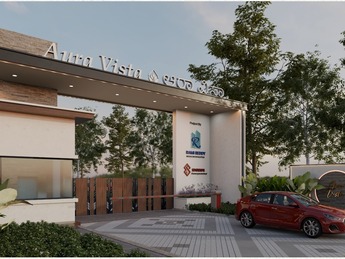What are preferential location charges in real estate?
Koheli

When it
comes to real estate, the term "preferential location charges" or
PLCs is often used in the industry. But what exactly are preferential location
charges, and how do they impact property buyers? In this blog, we'll explore
everything you need to know about PLCs in real estate.
What
are Preferential Location Charges?
Preferential
Location Charges or PLCs are charges levied by real estate developers for
properties in premium locations. These charges are applied for properties that
are located in prime areas of the city, such as near major commercial hubs,
transportation hubs, and other high-demand areas. The amount of PLCs varies
depending on the location and the amenities available in the area.
For example,
a developer may charge a higher PLC for a property located near a metro station
or a shopping mall. The PLCs are over and above the basic cost of the property
and are paid by the buyer at the time of possession. It is important to note
that PLCs are not a fixed amount and can vary depending on the developer's
policy and the location of the property.
How
do PLCs impact property buyers?
PLCs can
significantly impact the cost of a property, especially for buyers who are
looking to invest in prime locations. The charges can range from 5% to 25% of
the property's base price, depending on the location and the amenities
available in the area. For buyers who are willing to pay the extra charges,
PLCs can be an attractive proposition as they offer several advantages.
Firstly,
properties located in premium locations tend to have better connectivity,
infrastructure, and amenities, making them more attractive to buyers. Secondly,
properties with PLCs have a higher resale value, which can be beneficial for
investors who are looking to make a profit in the long run. Lastly, PLCs can be
a way for developers to fund the development of high-end amenities in the area,
which can add value to the property.
Conclusion
PLCs are a
common practice in real estate, and they can significantly impact the cost of a
property. It is important to understand that PLCs are not a fixed amount, and
they vary depending on the location, developer policy, and the amenities
available in the area. Therefore, it is essential for buyers to thoroughly
research and evaluate the value proposition of the property before making a
decision.
One
advantage of properties with PLCs is that they are usually located in prime
locations with better connectivity, infrastructure, and amenities, making them
more attractive to buyers. For instance, a property located near a metro
station or a shopping mall may have higher PLCs, but it can offer the
convenience of easy access to transportation and commercial centers. In
addition, such properties tend to have a higher resale value, which can be
beneficial for investors looking to make a profit in the long run.
However, it
is important to note that not all properties with PLCs offer good value for
money. Sometimes, developers may charge higher PLCs for properties in locations
that are not necessarily premium. In such cases, buyers should be cautious and
carefully evaluate the value proposition of the property before making a
decision.
Buyers
should also understand that PLCs are an additional cost and should be factored
in when calculating the total cost of the property. They should also ensure
that the PLCs are clearly mentioned in the agreement and that they are aware of
the payment terms and conditions.
In conclusion, PLCs can be a significant aspect of real estate, especially for properties located in prime locations. They can offer several advantages, such as better connectivity, infrastructure, and amenities, but they also impact the cost of the property. Therefore, it is essential for buyers to research and evaluate the value proposition of the property before making a decision. By doing so, buyers can make an informed decision and invest in a property that is best suited to their needs and budget.




